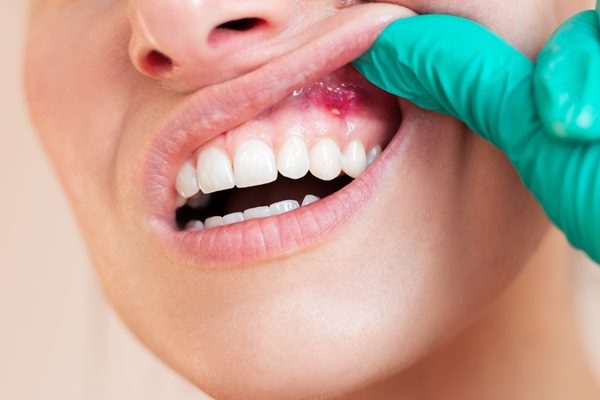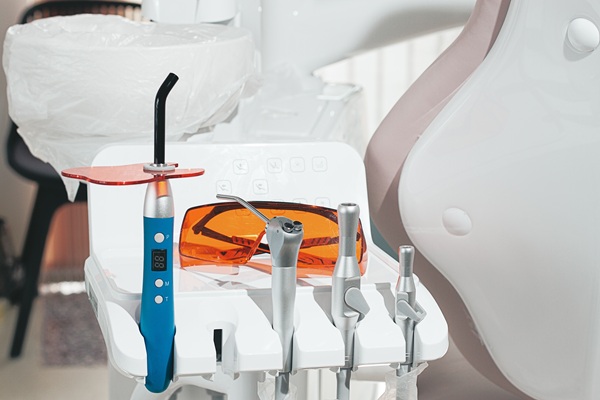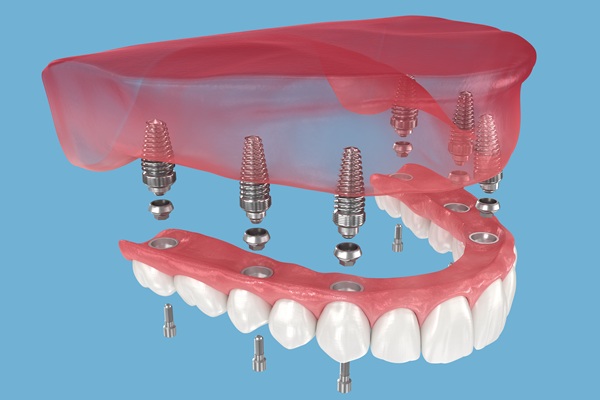Options for Anesthesia During Gum Surgery

Gum surgery is a safe and effective way to improve oral health and address a variety of cosmetic concerns. However, many who could benefit from treatment do not visit the dentist out of fear that the procedure is painful. If this is your concern, it is helpful to understand the different types of anesthesia options that are available during gum surgery.
Anesthesia options to consider during gum surgery
The most common options for anesthesia during gum surgery are local anesthesia, IV sedation, and general anesthesia. Each is unique in its own way. The best way to determine which is right for you is to discuss available options with your dentist.
Local anesthesia
Local anesthesia is common for more invasive dental procedures in which the patient is able to return home on the same day as the procedure, such as gum surgery. Many dentists also use local anesthesia for cavity fillings, tooth extraction, and other fairly common dental procedures.
Therefore, most dental patients experience local anesthesia at some point, unless they specifically elect not to have it. The patient is awake the entire time, although they may feel different and the area that is operated on (the gums) is numb. The patient typically does not feel much, if anything, during gum surgery while under local anesthesia.
IV sedation
Intravenous or IV sedation is not used as often during gum surgery as local anesthesia, but some patients may request it. It involves the placement of an IV catheter and administering the sedative through the IV. The benefit of IV sedation is that the patient may feel less discomfort during the procedure. The drawback, however, is that they are far less aware of what is going on. Some patients report remembering certain details of the experience, whereas others report not having any memory of their experience while under IV sedation. It is safe and effective when administered correctly. The effects do not last as long as general anesthesia.
General anesthesia
General anesthesia is often the preferred method for patients who are concerned about experiencing discomfort during gum surgery. When the term “put to sleep” is used in surgery, it typically means general anesthesia. The patient is essentially completely unconscious with general anesthesia. Dentists may recommend it if the gum surgery is more extensive and will take longer.
No anesthesia for treatment
No anesthesia is rare for gum surgery. It is not recommended as gum surgery most often involves incisions that are painful. However, it may be an option for patients who are adamant about not using sedation, and if the procedure is considered to be very minor and does not take long.
Find out more about gum surgery and sedation options
If you would like to learn more about the anesthesia options that are available to you during gum surgery, contact our dental team today. We understand the anxiety and stress that often exists in patients before gum surgery, and we are here to make their life easier and ensure the process is as painless and convenient as possible.
Request an appointment here: https://aventura.luvicdental.com or call Luvic Advanced Dentistry Aventura at (305) 677-0553 for an appointment in our Aventura office.
Check out what others are saying about our services on Yelp: Gum Surgery in Aventura, FL.
Related Posts
Understanding that oral surgery includes tooth extractions allows dental patients to recognize that extractions are serious dental treatments. General dentists often perform tooth extractions on their patients only when the tooth is no longer saveable. Therefore, a tooth replacement option must be chosen whenever a tooth is extracted.There are two different types of extractions: simple…
For optimal oral health, it is a general rule of thumb to receive professional teeth cleaning every six months. Some patients need even more frequent cleanings to maintain a healthy smile. Knowing the reasons why this would be necessary can help you make informed oral health decisions.Professional teeth cleaning is a foundational element of preventive…
Thinking about choosing implant-supported dentures to replace your missing teeth? This type of denture offers many benefits, which is why this denture choice has become so popular. However, properly caring for dentures supported by implants is necessary so they will last for many years.While there are many different types of denture choices to choose from,…
Invisalign® is a fast way to straighten teeth, using clear, removable trays. However, smoking can negatively impact patient comfort and aligner appearance throughout treatment. It can even prolong treatment times. Learning more about how smoking can affect Invisalign treatment can help motivate patients to limit or quit tobacco altogether.Smoking tobacco can reduce the efficacy and…


